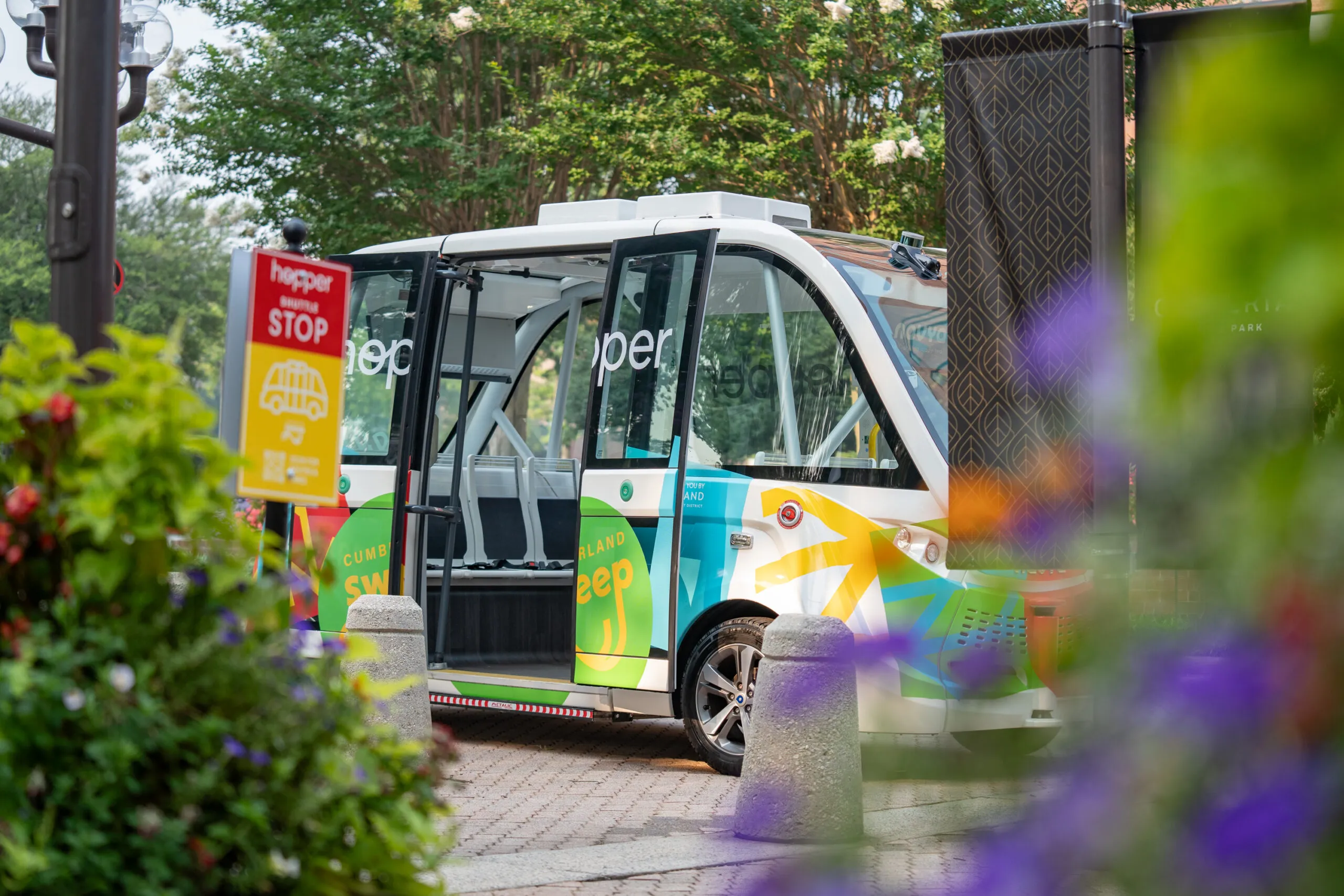
Autonomous passenger vehicle specialist Beep has launched a pilot service in Atlanta, US.
The new electric, AV shuttle – the Cumberland Hopper – will operate along two routes in the city’s Cumberland Community Improvement District (CCID) between The Battery, Truist Stadium and Cobb Galleria.
The pilot runs until March 2024 and is part of a mobility strategy called Cumberland Sweep, which aims to improve connectivity for baseball fans, visitors, residents and businesses by introducing a three-mile corridor of dedicated pedestrian and bike lanes over the next few years, which is designed to connect key destinations and reduce reliance on cars.
CCID will use the Beep pilot for data collection, performance evaluation and to glean community feedback. Kim Menefee, CCID executive director says the shuttle provides the community “with a sustainable and convenient transportation option that prioritises connectivity and safety”.
Joe Moye, CEO of Beep, says its AVs are designed to “provide equal access to transportation and streamlined connectivity to communities across the country”.









